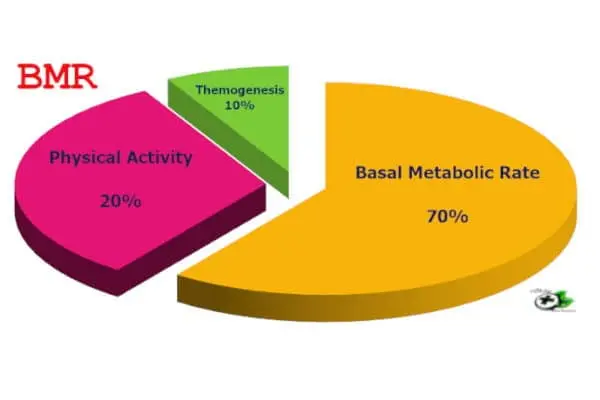Causes Why Baby Making Gasping Sounds But Breathing Fine
You are not alone if you are anxious. That is about your baby making gasping sounds but breathing fine while sleeping or awake. Many parents are concerned when they hear their infant making weird noises, although this is often normal. If your infant is typically healthy and happy, there is probably no reason to be concerned.
When you see a newborn baby gasping for air, you may have wondered what was going on. After all, they’ve just spent nine months in a relatively air-tight environment, so why the sudden need for oxygen?
It turns out that there are a few potential reasons why a baby may gasp for air after birth. For one, they are adjusting to breathing outside the womb, which is a much different experience than breathing inside the womb.
It is common for newborns to make grunting or gasping sounds while they are breathing. This is often because their airways are still developing and they are not yet able to coordinate their breathing correctly. While it may be alarming to hear your baby making these sounds, it is usually nothing to worry about and they will eventually outgrow it.
Also, when babies sleep or move from one sleep state to another, they may make gasping or grunting noises. Actually, their muscles are relaxing and their respiration becoming slower. It’s completely natural and nothing to be concerned about.
In some cases, gasping or grunting may be a sign of a more serious condition, such as respiratory distress syndrome or pneumonia. If your baby is having difficulty breathing, is not feeding well, or has other signs of illness, be sure to contact your doctor right away.
Potential Reasons Why a Baby Gasping For Air
Let’s now examine the reasons why you should be concerned about a baby gasping for air and immediately take action.
Respiratory Related Causes
Respiratory Infections: If your infant is gasping for air, it could be an indication of a respiratory infection.
There are many different types of respiratory infections, including pneumonia, bronchiolitis, and croup. These infections can be caused by viruses, bacteria, or fungi.
Pneumonia is the most serious type of respiratory infection. It most often affects children under the age of five and can be deadly. Symptoms of pneumonia include coughing, difficulty breathing, rapid breathing, sweating, and fever.
Bronchiolitis is another respiratory infection. It usually affects infants and young children. Is usually mild and can be treated at home. If untreated it can get serious. Symptoms of bronchiolitis include coughing, wheezing, and difficulty breathing.
Croup is a less serious respiratory infection, but can still be dangerous. It usually affects children under the age of five. Symptoms of croup include a harsh, barking cough, difficulty breathing, and a hoarse voice.
Whooping Cough is a highly contagious bacterial infection. The infection is spread through contact with respiratory secretions, such as saliva, mucus, or blood, from an infected person.
Babies are particularly vulnerable to the disease, as their immune systems are not yet fully developed. Whooping cough can be serious in infants. If you think your child may have whooping cough, contact your healthcare provider immediately.
Asthma: A disease that is caused by chronic inflammation of the airway. Unfortunately, the root cause of asthma is unknown. Babies find it difficult to breathe when affected. Some common symptoms include:
- Coughing, especially at night
- Wheezing or a whistling sound when breathing
- Shortness of breath
- Rapid breathing
- Chest tightness
- Tiring easily when feeding
If your baby has asthma, it’s important to be aware of the triggers and try to avoid them if possible. The common triggers include Allergens, cold air, and infections.
If your baby does have an asthma attack, it’s important to have a plan in place so you know what to do. Do consult with a pediatrician.
Laryngomalacia: It is caused by a congenital softening of the cartilage in the larynx (voice box). This softening can cause the collapse of the vocal cords, resulting in noisy breathing and difficulty feeding. The most common cause for this condition is noisy breathing in infants.
There is no specific treatment for laryngomalacia sound. In most cases, the condition improves on its own as the baby grows. However, rare that babies undergo surgery.
Non-Respiratory Related Causes
Sleep apnea: It is a condition in which a baby’s breathing is interrupted during sleep. It can happen several times an hour and can last for seconds or minutes. Sleep apnea can occur in babies of any age, but it is most common in premature babies.
The most common symptom of sleep apnea is snoring. Other symptoms include pauses in breathing, gasping, or choking. Sleep apnea can cause problems with feeding and sleeping, and can lead to serious health problems in some babies.
Sleep apnea is treated with a device that helps keep the airway open during sleep. The most common type of device is called a continuous positive airway pressure (CPAP) machine. CPAP machines are safe and effective, but they can be expensive.
If your baby has sleep apnea, it is important to talk to your doctor about treatment. Untreated sleep apnea can lead to serious health problems.
Babies who are exposed to secondhand smoke have an increased risk of developing respiratory issues. Ensure that not to allow anyone to smoke around your children.
Meconium aspiration syndrome: This occurs in about a lower percentage of all births. Meconium is the newborn’s first feces or stool. Around the moment of birth, meconium and amniotic fluid can mix and enter a newborn’s lungs, causing meconium aspiration syndrome. This is more of premature babies’ meconium aspiration syndrome.
With prompt and proper treatment, most babies with meconium aspiration syndrome will recover without any long-term problems.
Premature babies: Premature babies are those born before 37 weeks of gestation. They are at higher risk for many health problems, including respiratory distress syndrome (RDS). Babies with RDS may also be more likely to develop other respiratory problems.
Fortunately, there are treatments available that can help premature babies with RDS breathe easier and improve their chances of a healthy start in life.
Reflux: This common condition occurs when the muscle that separates the stomach from the esophagus relaxes and allows stomach contents to flow back, or “reflux,” into the esophagus.
If your baby has reflux, you may notice that they spit up more than usual. They may also have a sour taste in their mouth, cry or fuss more than usual, and have trouble sleeping. You may also see them arch their back, clamp down on their stomach, or turn their head to the side when spitting up. These are all signs that your baby is experiencing discomfort from reflux.
Environmental Effects on Babies

Passive smoke: Babies are especially vulnerable to the harmful effects of secondhand smoke. It is because they have not yet developed the ability to clear their lungs of the harmful chemicals in smoke.
Dry Air: Dry air can have a significant impact on a baby’s breathing. When the air is dry, it can irritate a baby’s nasal passages and make breathing more difficult. There are a few things that you can do to help your baby if the air is dry:
- Use a humidifier in your baby’s room. This will help add moisture to the air and make breathing easier.
- Keep your baby well hydrated. Make sure that your baby is getting enough breast milk or formula.
- Use a saline nose spray to help moisturize your baby’s nasal passages. Particularly useful during winter conditions.
Ways To Reduce Babies Gasping for Air
There are many ways to reduce gasping in babies. Here are commonly used ways to reduce gasping in babies:
- Check for a blockage: If your baby is gasping for air, it could be because their airway is blocked. Check to see if anything is blocking their nose or mouth, such as mucus or vomit. If you suspect that their airway is blocked, seek medical attention immediately.
- Try a different position: If your baby is lying down, try sitting them up. This can help to open up their airway and make it easier for them to breathe.
- Burp your baby: A build-up of gas in the stomach can cause gasping. Try burping your baby after feedings to release the gas and help them to feel more comfortable.
- Use a pacifier: Sucking on a pacifier can help to soothe a baby who is gasping for air. The sucking motion can also help to release any trapped gas.
- Try infant massage: Gently massaging your baby’s tummy can help to release trapped gas.
- Try gripe water: Gripe water is a natural remedy that can help to relieve gas and other stomach discomforts in babies.
- Apply a warm compress: A warm compress applied to the stomach can help to relax the muscles and relieve gas pain.
Takeaway

It is common for newborns to make grunting or gasping sounds and to breathe normally. Sometimes your baby making gasping sounds for fun is natural and breathing fine.
You should be alarmed if the baby is having difficulty breathing. The associated symptoms may be fever, cold, poor appetite, cough, crankiness, and lethargy. Also, wheezing or whistling sounds accompany gasping. Know that if your baby’s face turns blue, it indicates lower oxygen levels in the body.
If your baby is gasping for air and you’re concerned, don’t hesitate to seek medical attention.
Source:
Noble Home Remedies adheres to rigorous sourcing standards, drawing information from peer-reviewed studies, reputable academic research institutions, and esteemed medical journals and associations. We prioritize using high-quality, trustworthy sources to maintain the accuracy and integrity of our content. You can learn more about how we ensure our content is accurate and current by reading our editorial policy.
- Laryngomalacia by Kids’ Health
- Asthma in Infants and Young Children by Asthma and Allergy Foundation of America
- Overview of Viral Respiratory Tract Infections in Children by MSD Manual
- Sleep Apnea in Babies by Children’s Marcy
- Respiratory Distress in the Newborn by National Library of Medicine
- Croup and Your Young Child by The American Academy of Pediatrics
- Meconium Aspiration Syndrome by The Johns Hopkins University
Trust in your purchase:
Every product featured on our site has been carefully researched and selected based on quality, customer ratings, and positive reviews to ensure you receive excellent value for your money.
Please note:
This post contains affiliate links. If you make a purchase through these links, we may earn a small commission at no additional cost to you. This helps support our site and allows us to continue bringing you valuable content. Thank you!
Thank you for your precious time spent with NobleHomeRemedies.
You may also like:
Do This For 1 Minute For 7 Days
Practice this for 7 days and you will see the changes in your life. Start…
Can Coffee After Drinking Alcohol Sober You?
Drinking Coffee After Drinking Alcohol: Can It Sober You Up? When people drink alcohol, they…
What Does a Cavity Look Like
What Does a Cavity Look Like – 10 Best Prevention Efforts Cavities in their beginning…
Epsom Salt Health Benefits
12 Epsom Salt Health Benefits: Boost Your Body and Mind Epsom salt has been used…
Basal Metabolic Rate Calculator
Basal Metabolic Rate Calculator: Weight Loss-5 Basic Activity Levels Many people, specifically women, consult BMR…
Inflammation Diet for Beginners
Conquer Inflammation: Your 7-Day Anti-Inflammation Diet for Beginners Get ready to feel better, more energized,…






